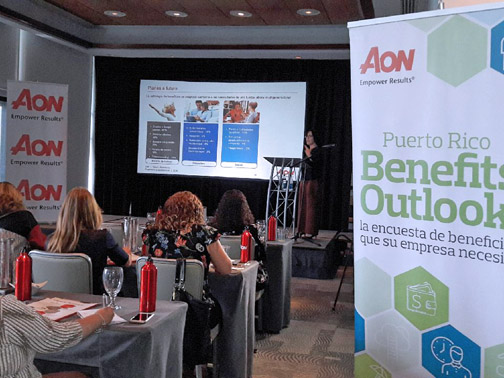SNAP program amended to include more farm workers


Gov. García-Padilla, at podium, explains the changes, while Agriculture Secretary Myrna Comas (left) and Family Department Secretary Idalia Colón listen.
In an effort to pull individuals out of their dependence on the government and improve the island’s food security issues, Gov. Alejandro García-Padilla announced Wednesday several amendments to the local Supplemental Nutrition Assistance Program that will allow more families to continue or start working at farms, without losing their benefits.
“Making good on our promise, we have raised the limit of exempt income for bona fide farmers and livestock workers from $461 to $760 per month,” the governor said during a news conference held at the Martex Farm in the southern town of Santa Isabel.
At the same time, he announced that a wider variety of agricultural products will qualify for total income exemption during their harvest season. Until now, only coffee, tomato and sugarcane workers qualified for this exemption. With the new amendment, salaries of plantain, ripe banana, green banana, yucca, orange, melon, mango and pineapple workers will not be taken in consideration when they apply for SNAP benefits, the governor added.
As a result of the expanded availability of crops in which SNAP beneficiaries can work, as many as 200 to 400 jobs could be created per region, according to government estimates.
To help the beneficiaries in their transition to the work force, the Family Department’s Socio-Economic Development Administration, known as ADSEF, raised from nine to 12 months the exemption period during which these workers — who work a minimum of 25 hours per week — can still receive their benefits.
“They will still get their SNAP benefits for the first four months, while they begin getting paid and proceed to make adjustments. After that period, the exemption will decrease in a gradual way, to 66 percent from the fifth to the eighth month, and to 33 percent from the ninth to the twelfth month. From month 13 on, that income will be taxable, unless it is exempted by some law,” said García-Padilla.
“With this step-by-step transition, the SNAP beneficiary will have an easier entry into the work force and will have a better chance of getting a steady job and financial stability,” the governor said.
These incentives, which have been approved by the federal Food and Nutrition Service, have been put into effect as a result of collaboration between ADSEF and the Puerto Rico Agriculture Department.
“These amendments have been designed to change the perception that has plagued the SNAP benefits for decades, as a program that keeps its beneficiaries in the poverty level. We’re helping to bring to a close the dependence cycle, while we make sure our families are better fed,” García-Padilla said.
About 1.3 million individuals, or 670,000 families, receive SNAP benefits in Puerto Rico.












